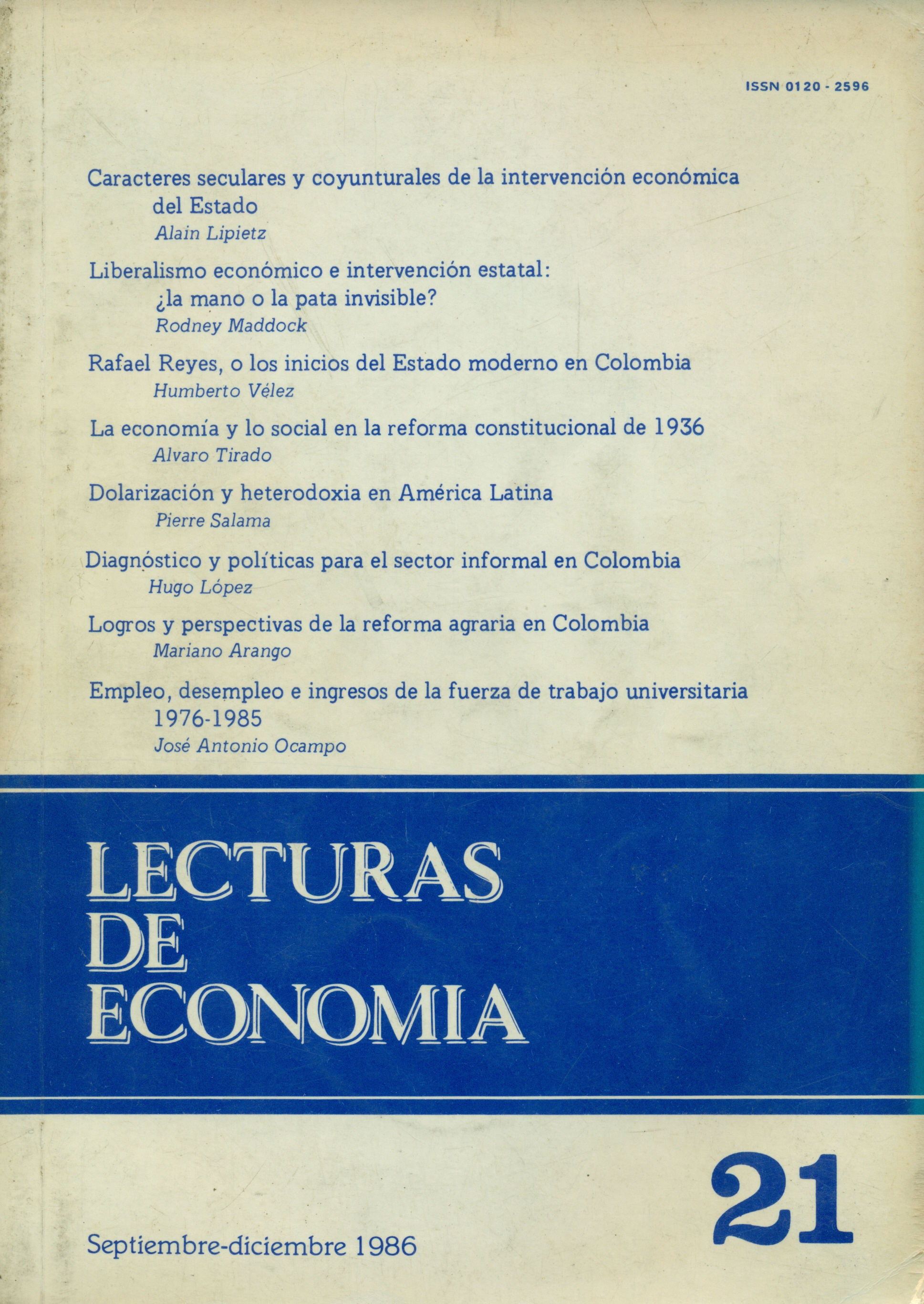Diagnostico y Políticas para el sector informal en Colombia
DOI:
https://doi.org/10.17533/udea.le.n21a7957Abstract
• Resumen: El empleo “informal" representa el 55% del empleo total en las cuatro grandes capitales colombianas (Bogotá, Medellín, Cali y Barranquilla) y el 63% en las ciudades intermedias. Se sitúa al margen de las reglamentaciones legales en materia de seguridad social, salario mínimo y normas de organización urbana. Opera en mercados –Laborales o de bienes y servicios- que son flexibles en cuanto a remuneraciones, a diferencias del sector “moderno”, en donde salarios y condiciones laborales están regulados por normas Legales y acuerdos obrero-patronales de todo tipo. Debido a ello las crisis producen desempleo en la economía moderna y caídas de ingreso en la economía informal. Este artículo explora la diferenciación interna de esta última (existiría un componente de miseria que se explica exclusivamente por desempleo y un componente potencialmente eficaz que aprovechará las ventajas comparativas que tienen en algunas normas de negocios de pequeña escala). Examina las políticas estatal y privada frente a este sector y propone una estrategia (económica y jurídica) destinada a crear empleos alternativos para las actividades informales más precarias y demanda apoyo institucional para aquellas que son potencialmente eficaces.
• Abstract: The "informal" economy employs some 60 percent of Colombian urban workers. It operates al the margin of legal requirements concerning social security; minimum wages, and urban zoning. The markets involved, both for labor and goods and services, are characterized by their flexibility, in sharp contrast to the rigidities of the modern sector of the economy. The implication of this is that generalized economic crises have quite a different impact on the two parts of the national economy, the modern sector being characterized by unemployment, the other by income falls. This difference requires the development of different policies for the two sectors. This paper considers public and private policies directed towards the "informal" sector and proposes an economic and judicial strategy designed to improve the situation therein.
Downloads
Downloads
Published
How to Cite
Issue
Section
License
This page, by Universidad de Antioquia, is licensed under a Creative Commons Attribution License.
Authors who publish with this journal agree to retain copyright and grant the journal right of first publication, with the article licensed under a Creative Commons Attribution-NonCommercial-ShareAlike License allowing others to share it as long as they acknowledge its authorship and original publication in this journal.
Authors can enter into separate, additional contractual arrangements for the non-exclusive distribution of the journal's published version of the work (e.g., post it to an institutional repository or publish it in a book), provided that these arrangements be not for profit and the journal be acknowledged as the original source of publication.
Authors are permitted and encouraged to post their papers online (e.g., in institutional repositories or on their websites), as it can lead to valuable exchanges as well as greater citation of the published work.







